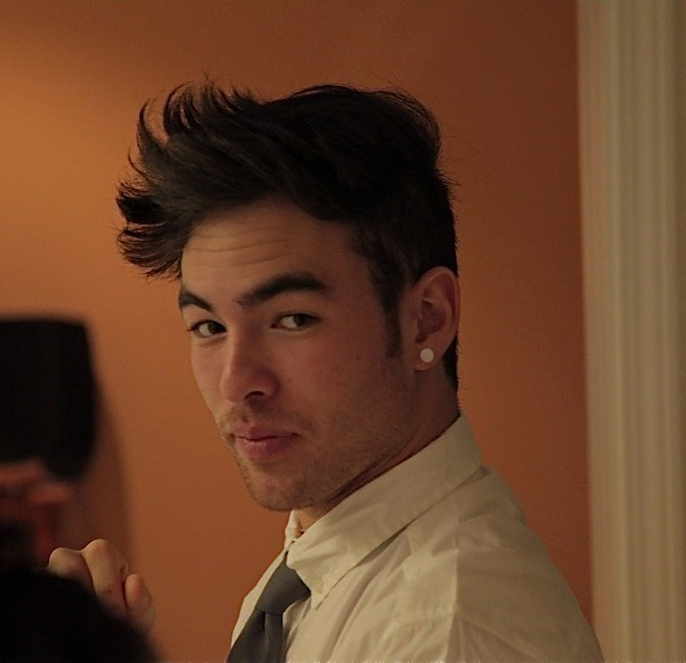And other geeky thoughts to share with you on National Law Day.
Last month I was invited to give the keynote at a Nonprofit Law Conference in order to explain to non-legal nonprofits why they should care about – and proactively address – their organization’s legal issues. (Yikes. Fun topic, right?)
So I showed up and talked about why I love the law, why I love nonprofits, and how the two sectors fit together. My husband told me I couldn’t actually stand up in front of a group of non-lawyers and say that I love the law. He warned that no one would take me seriously after that. Since today is National Law Day, I figured I would share my remarks with the OneJustice network, and you all can tell me if it works – or not. Do you agree that lawyers can be heroes? Is it okay to proclaim my love for the legal profession? Tell me what you think! Happy Law Day, all!
—————————————————-

Julia Wilson is Executive Director of OneJustice (and self-proclaimed fan of anything to do with lawyers and nonprofits).
OneJustice as an organization stands at the intersection between the legal profession and the nonprofit sector. The social problem we exist to remedy is the fact that millions of low-income and other under-served Californians suffer needlessly from solvable legal problems, simply because they do not have access to or cannot afford an attorney. For OneJustice and our statewide network of the 100+ nonprofit legal organizations that we support – lawyers are a fundamental component of our solution.
In other words, we LOVE lawyers. (I will agree for the record that might have something to do with the fact that most of us ARE lawyers.) But we believe that lawyers can be heroes. From our statewide vantage point, we see hundreds of thousands of volunteer attorneys who use their expertise and skills to change the lives of — and empower — Californians in need.
I have four basic proposals I want to make to you today:
- The law is an amazing social contract that we all sign onto,
- Nonprofits are – at the core – creatures of the law,
- Legal problems are truly the pits, and
- In order to fully capitalize on the nonprofit sector’s capacity to solve societal problems and change the world – we must deal proactively and sensibly with the legal issues facing our organizations.
THE LAW IS AN AMAZING SOCIAL CONTRACT
I love the law. What I love is the fact that it is, at its heart, basically just an agreement between you and me and all of us that we will trust in a set of rules and remedies – and a system of courts and judges that we basically created – to resolve our disputes. For me, our social agreement that the law should exist – and that it works – is an amazing social miracle and a wonderful system for conflict resolution.

Yep, at OneJustice we actually LOVE lawyers.
Now I’m not saying that it is perfect. And I’m definitely not saying that we all agree on exactly what the laws should be or say or require or do. But I do love that fundamentally, as a core element of our society, we have agreed that there should be laws.
This is not true in all countries. I have been fascinated to hear stories from colleagues who are working on developing the rule of law in other parts of the world where that social contract does not exist or exists only in very limited functionalities. And frequently in the absence of the rule of law, people resort to their own ideas of enforcement and appropriate restitution for alleged harms or to managing their conflict through violence. So, I believe that our legal system – although imperfect and sometimes even disappointing – is overall a beautiful thing.
NONPROFITS ARE INHERENTLY CREATURES OF LAW
Another reason I love the law is that it makes possible another thing I love: the nonprofit sector. Our organizations are absolutely creatures of law.
Laws create all corporations – including nonprofit corporations – kind-of out of thin air. Statutes and regulations allow corporations to exist and set up the choices we make in terms of organizational structure. Tax law permits a large chunk of the nonprofit sector’s very economic engine; tax-exempt status is a critically important thing for many of us, who have charitable giving as a major component of our revenue model. Law creates our boards of directors and charges them with responsibilities that are derived from old English common law – concepts that are hundreds of years in the making and still hold true for us today. Law structures my employment relationship with my board, and in turn, it is the connective tissue between me and my staff – and then between those staff members to each other.

Nonprofits are inherently creatures of law – and that is a good thing!
So as creatures of law at our core, our organizations exist within an unavoidable and intricate network of rules, regulations, regulatory bodies and legal relationships. I see the law as this invisible, webby netting that supports our very existence and work. I love that there are rules and systems and structure and guidance for how this all should work. (Can you tell why I became a lawyer in the first place?) We take this supportive structure for granted WHEN IT IS WORKING. But that brings me to my third point . . .
AND THE TRUTH IS, LEGAL PROBLEMS ARE THE PITS
I started my legal career as a staff attorney at the Legal Aid Society of San Mateo county providing free legal assistance and representation to low-income residents of this county. And I saw this reality every day. Legal problems come up with no warning, and they can throw your life into crisis mode.
This is definitely true for the low-income clients of nonprofit legal organizations – the grandmother who had to file for legal guardianship when her daughter passed away unexpectedly. The grassroots group of moms in Kern County who cannot access clean water for their community garden. The family whose landlord files to evict them after they complain about the raw sewage and mold in their apartment.

If law provides the infrastructure for our organizational home, let’s not wait until the pipes are leaking to deal with legal issues!
And the same is true for nonprofits.
OneJustice provides coaching, training and support for our network of the executives and boards of nonprofit legal organizations around the state. The vast majority of these folks are attorneys, and they also end up facing unexpected legal problems. We work on human resources management, and they express concerns about whether they are handling their exempt and non-exempt classifications properly. They move into new office space, and have immediate problems with the new landlord that force them to try to parse out the terms of their lease. Or a collaboration with other nonprofits on a joint project funded by the county goes sideways – with no contract and lots of funding in the balance.
If the reality is that the law functions as the beams and supports that hold up our organizational house, when the pipes start leaking or the roof needs to be replaced it can throw us completely off our strategic road map – and have substantial financial impact as well.
THE NONPROFIT SECTOR – LIKE THE LAW – IS AN AMAZING SOCIAL UNDERTAKING
I believe that nonprofits are one of the major sources of innovation and change in our country. And I believe we have the capacity to offer even more. Our sector is full of creative ideas and new ways of doing things. We have truly breathtaking potential to effect fundamental positive change – and yet sometimes we aren’t able to fully capitalize on that potential – as organizations and as a sector.
And why?
Well, there has been a windstorm of reaction to Dan Pallota’s recent TED talk arguing that society places limitations on nonprofits capacity for innovation by expecting us to underinvest in our very economic model (fundraising) and marketing. And the Stanford Social Innovation Review has written wonderfully about what they call the Nonprofit Starvation Cycle, arguing that funder’s off-target expectations about what it costs to actually run a nonprofit has created a vicious cycle that forces nonprofits to underinvest in core operations and infrastructure – such that we hit points where we can barely function as organizations, let alone serve our clients and communities.
And I would add to this growing list of underinvestment a failure in – or at least a severe discomfort with – proactively dealing with the legal issues that our organizations face and assessing what legal issues we might face in the future. I can tell you from my own experience that I have taken the “ostrich-head-in-sand” approach to legal issues in running OneJustice. I don’t create a formal contract relationship with a partner nonprofit until there are potential disagreements on the horizon. I feel the temptation to just sign the stupid lease for our new office – even though some of the language is opaque and makes my head spin. It feels important but not urgent to file for the trademark on our innovative new project name.

Do you agree that lawyers can be heroes?
But giving in to those very natural tendencies creates risks. Risks that I cannot see in the moment – but risks that feel completely unacceptable if I take the time to really look at them – and risks that would have significant negative impact on the organization and our programs if they came to fruition.
OK, SO THEN WHAT SHOULD WE DO?
I propose that as leaders of nonprofits, it is incumbent on us to embrace the fact that we lead highly regulated and complicated organizations. That means dealing (in advance) with legal topics. It means we must identify legal issues (and risks) as opportunities to continually improve and strengthen our organizations – as well as challenges. We have to keep learning, and finally (and perhaps counter-culturally…..) we have to agree that lawyers can be heroes – and use them as skilled supporters who are capable of guarding and growing the very heart of our work.
————————————————————————————-
On May 1 the United States officially recognizes Law Day to reflect on the role of law in the foundation of the country and to recognize its importance for society. More information about Law Day is available at the American Bar Association’s website. The theme of 2013 Law Day is “Realizing the Dream: Equality for All,” celebrating the movement for civil and human rights in America and the impact it has had in promoting the ideal of equality under the law. Law Day 2013 provides an opportunity to reflect on the work that remains to be done in rectifying injustice, eliminating all forms of discrimination, and putting an end to human trafficking and other violations of basic human rights.








